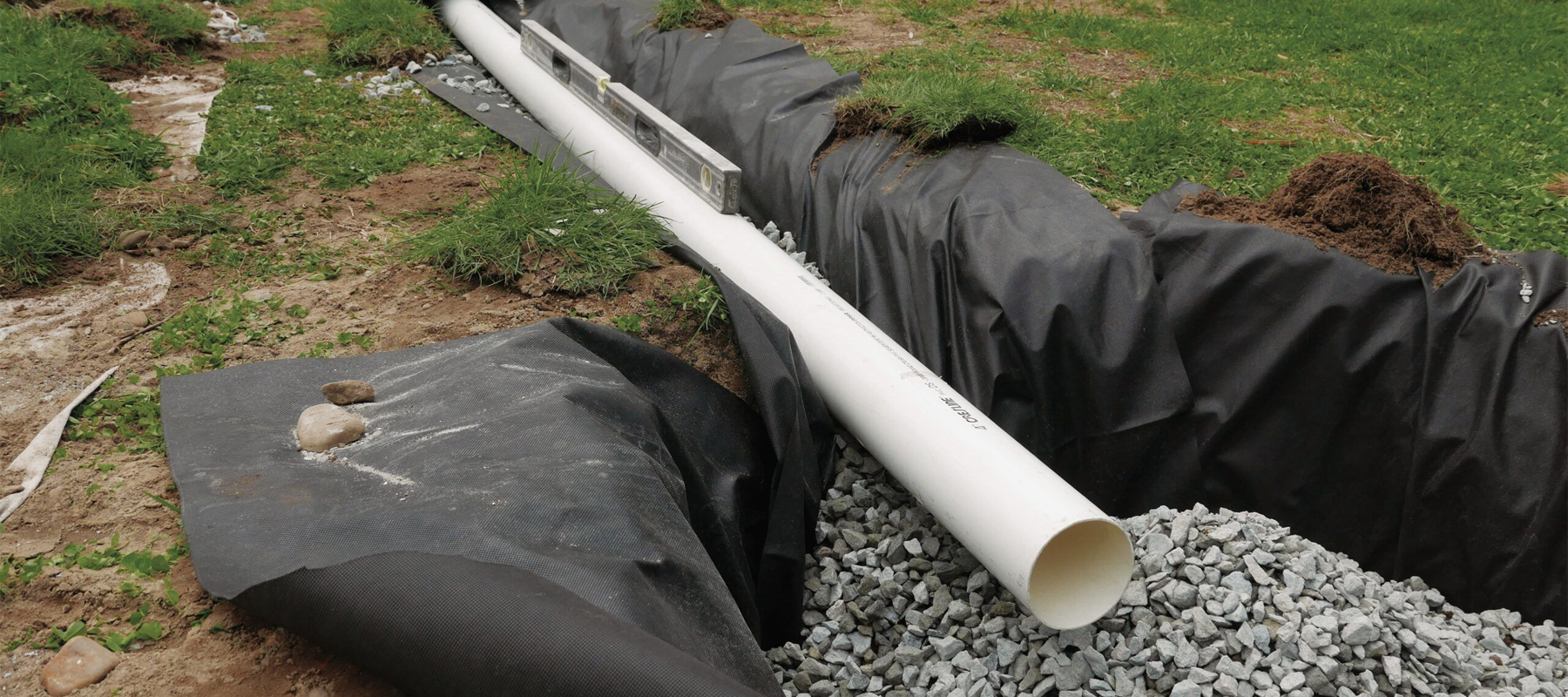How Much Does a Drywell Cost?
Last Updated: June 02, 2023
On This Page
A drywell is a subterranean temporary storage unit designed for passively displacing stormwater runoff. It can be as simple as a large hole in the ground or made from a prefabricated chamber with perforated sides. Also known as a soakway, a drywell captures excess water and disperses it back into the ground.
Drywell Considerations #
Uncontrolled rainwater can wreak havoc on a property. Even a moderate rainstorm can produce over 1,000 gallons of water. Without proper drainage, the influx of water might damage property and create standing water that kills vegetation and invites mosquito breeding. And because drywells direct stormwater back into the ground, water that picks up pollution from rooftops and other surface areas is kept from flowing directly into waterways.
Here's what else you should know about drywells prior to installing one on your property:
Types of Drywells #
Water typically flows directly from a downspout into a drywell by way of buried entry pipes. However, the downspout and well can also be indirectly connected by a grassy swale.
As for the well itself, you can either buy a prefabricated unit (such as the Flo-Well dry well or concrete dry well) or construct a well from various construction materials. Dry wells are commonly made from porous landscape fabric and crushed stone, although improvised wells made from a heavy duty trash barrel, steel drum are also possible. If using a drum or barrel, bear in mind that the container must be perforated to allow water drainage.
Obtaining Permission #
Dry wells can affect groundwater, so their use may be regulated by the state. Registration or a permit may be required for a dry well depending on the property type and location. If you live in New England, the Environmental Protection Agency (EPA) provides contact information for state agencies regulating dry well installation. Residents of other states should contact the appropriate agency for more details.
Maintenance #
After a period of time it may be necessary to clean out the drywell and remove any debris that's preventing proper drainage. This can be done by the homeowner or you can have a professional come and clean it for you. Routine maintenance is unavoidable. It beats having to pay for a new drywell if your old one is unusable due to negligence with regards to maintenance.
Additional Resources #
Whether you want to install a dry well yourself or are simply interested in learning more, the following resources should prove useful:
- How to Build a Dry Well (Philadelphia Water Department)
- How to Install a Dry Well (This Old House)
- Drywells (Oregon State University)
Drywell Average Costs #
- This Old House estimates that installing a Flo-Well drywell as a DIY project costs about $200 (for the well, stone, and other materials).
- A prefabricated concrete drywell costs roughly $500 to $1,000 depending on size (common sizes include 500, 700, and 1,000 gallon).
- New York State estimates that a dry well costs $900 to $1,400. The city of Portland, Oregon puts the cost of a drywell at $1,200 to $1,500.
- A one-hour consultation with a landscape design company might cost $50 to $200. A consultation is advisable if you're uncertain of where and how to install a dry well. Should you decide to hire the company to install a drywell, consultation fees are typically rolled into the project cost.
